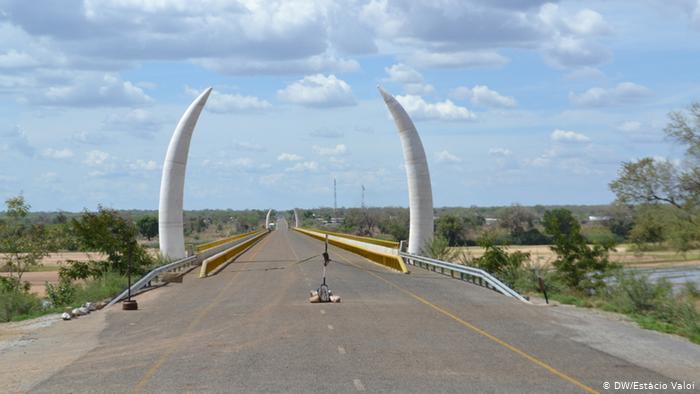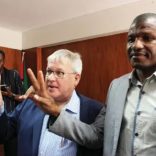Mozambique: Fight against terrorists remains on top of agenda – Chapo
UN registers expansion of terrorist activity from Mozambique into Tanzania – DW

The "Bridge of Unity", on the border between Mozambique and Tanzania.
- António Guterres highlights that cells of the “Islamic State” are increasing activity and influence in African countries with shared borders. Among other areas, the UN chief cites Mozambique to Tanzania as one of these pairs.
The United Nations Secretary General , António Guterres, says in a new report that the threat to international peace and security from the “Islamic State” (IS) extremist group is increasing. Guterres pointed to an “alarming” expansion of its affiliates in Africa and its focus on a comeback in its former self-declared “caliphate” in Syria and Iraq.
The report to the U.N. Security Council was circulated on Tuesday.
António Guterres said that the most striking development in the first half of 2021 has been the expansion of IS in Africa, where terrorist groups have inflicted the largest number of casualties.
He said some of the most effective IS affiliates are spreading their influence and activities from Mali into Burkina Faso and Niger, from Nigeria into Niger, Chad and Cameroon, and from Mozambique into Tanzania.
“It highlights that the interplay between terrorism, fragility and conflict has grown stronger, and underscores the need for an urgent, global response to support African countries and regional organisations,” Guterres said.
Terrorism and Covid-19
The report to the U.N. Security Council, which was circulated Tuesday, said IS and other terrorist groups have taken advantage of “the disruption, grievances and development setbacks” caused by the COVID-19 pandemic, both on the ground and online.
While lockdowns in non-conflict areas suppressed terrorist activity, in conflict areas where pandemic restrictions have less impact the threat from IS “has already increased,” Guterres said.
“As pandemic-related restrictions gradually ease, there is an elevated near-term threat of Daesh-inspired attacks outside conflict zones by lone actors or small groups that have been radicalised, incited and possibly directly remotely online”.
This exemplifies a wider and evolving risk from the accelerated use of digital technologies during the pandemic, and the potential for “new and emerging technologies to be used for terrorist purposes.”, he said.
Autonomy strengthened
António Guterres noted that the autonomy of regional affiliates has strengthened especially in West Africa and the Sahel, East and Central Africa, Afghanistan and South Asia. This evolution will be an important factor in Daesh’s future global impact, he quoted unidentified U.N. member states as saying.
The 16-page report, prepared by Security Council counter-terrorism committee and by experts monitoring sanctions on the Islamic State, said the group remains active in wide swaths of Syria, where it is seeking to rebuild its combat capabilities and expand its insurgency.
As for the extremist group’s finances, the UN chief said estimates of financial reserves available to IS in Iraq and Syria range between $25 million and $50 million, with one unidentified U.N. member state saying most funds are in Iraq.












Leave a Reply
Be the First to Comment!
You must be logged in to post a comment.
You must be logged in to post a comment.